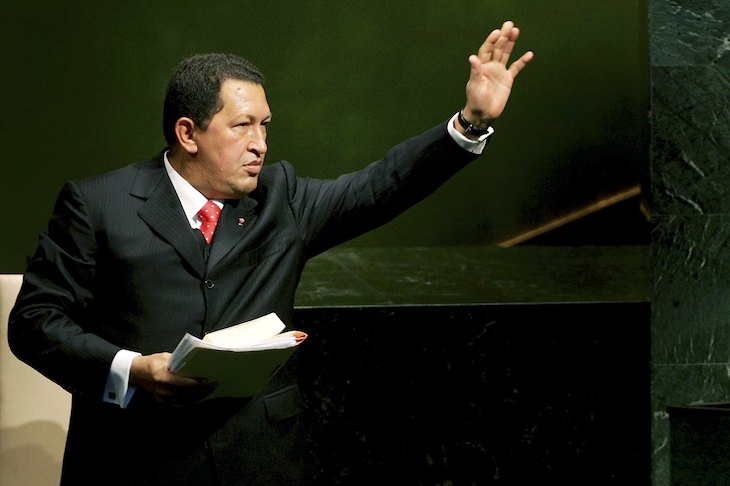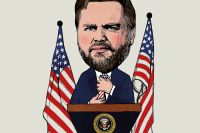Amy Chua’s latest book, Political Tribes: Group Instinct and the Fate of Nations, is a difficult read for anyone who is concerned about the current state of British politics. Chua is an American law professor and her previous book, Battle Hymn of the Tiger Mother, was about the effectiveness of the Asian approach to bringing up children. In that book, she praised her own parents for giving her a sense of pride in her Chinese heritage, claiming that one of the reasons Asian-Americans are more successful than other ethnic groups is because they feel that to fail would bring shame on their community. In Political Tribes, she takes a different tack, arguing that the ascendancy of identity politics on the right and the left of American politics is threatening to destroy the Republic.
Before discussing the rise of tribalism in the US, she devotes a chapter to Hugo Chavez’s electoral success in Venezuela and attributes it, in part, to the fact that he wasn’t a member of the country’s light-skinned social and political elite. For years, educated Venezuelans maintained that racism didn’t exist in their country because everyone is a mestizo — mixed blood. However, that ignores the fact that Venezuelans of African and indigenous heritage are, for the most part, poorer and less successful than Venezuelans of European heritage, a form of hierarchy known as sociedad de castas.
Chavez succeeded because he was a rarity in Venezuelan politics, a dark-skinned candidate. He had, in his own words, a ‘big mouth’ and ‘curly hair’, which he liked to draw attention to because they proved he had African ancestry. Chavez won the presidential election in 1998, and the three subsequent elections, because he rejected the myth that Venezuela was a multi-cultural paradise and looked and spoke like the vast majority of the electorate. He was victorious because he took on the liberal elite, exacerbated simmering racial tensions and mobilised the silent majority by appealing to their sense of tribal identity.
Chua argues that what happened in Venezuela is now happening in America, with Trump galvanising the white majority instead. And just as Venezuela is now teetering on the brink of becoming a failed state, America could go the same way if this tribalism is allowed to go unchecked.
Chua has plenty of bad things to say about Trump, but she also blames the politically correct professional class for creating a cultural climate in which white people increasingly feel as if they have no choice but to embrace the identity politics of the progressive left. Imagine you’re a white working-class American who is constantly told that it’s OK to feel proud of your racial identity if you’re non-white, but if you’re white you should ‘check your privilege’. Sooner or later you will reject that message and embrace a political candidate who tells you to feel the same pride in your heritage as the other races do.
Chua’s analysis is hardly original — conservative voices have been decrying the decline of universalism in American politics for decades — and it’s difficult not to see it as excessively alarmist, particularly if you read it alongside Steven Pinker’s Enlightenment Now. Chua ignores the part that Chavez’s socialist policies played in destroying the Venezuelan state, as well as Pinker’s charts and graphs showing how life is slowly getting better for the mass of ordinary people. The Republic will probably survive Trump’s presidency.
But as an explanation of why American politics has become so sectarian and polarised, Chua’s analysis feels spot-on. And it is increasingly relevant to our politics as well. Since the election of Jeremy Corbyn, who has exacerbated the rise of identity politics on the British left in spite of being white, male, heterosexual and privileged, and the EU referendum, the UK has begun to fracture into a welter of warring tribes.
That’s the context, I think, in which I was recently attacked by Labour MPs and their outriders in the media for being a ‘misogynist’, a ‘homophobe’ and, bizarrely, ‘despising working-class children’. As Chua says, politics should not be about an ‘in group’ trying to de-legitimise and shame members of an ‘out group’ by calling them names. Rather, it should be about the clash of ideas — about justice and fairness and the trade-off between freedom and equality. And the more tribal our politics is, the less rational and enlightened public debate has become.







Comments